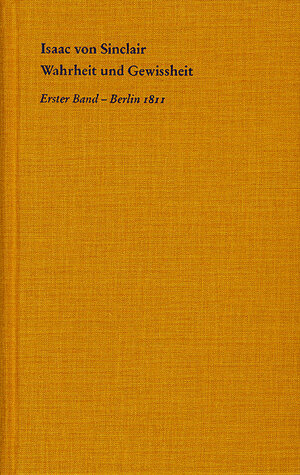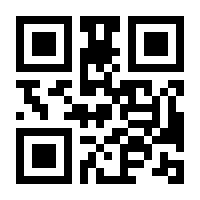
»Endlich verfügbar: ›Wahrheit und Gewissheit‹, das philosophische Hauptwerk von Isaac von Sinclair, der als Hölderlin-Freund berühmt wurde, aber auch selbst als Denker keine Fußnote darstellt.« Dirk Pilz, Frankfurter Rundschau
Wahrheit und Gewissheit
Erster Band - Berlin 1811
von Isaac von Sinclair, herausgegeben von Christoph Binkelmann, Christoph Asmuth und Patrick GrünebergIsaac von Sinclair (1775–1815), deutscher Diplomat und Schriftsteller, unternimmt in seinem dreibändigen Hauptwerk ›Wahrheit und Gewissheit‹ (1811) eine systematische Darstellung der menschlichen Erfahrung. Der hier edierte Band 1 entwickelt die metaphysischen und anthropologischen Grundlagen. Im Ausgang vom höchsten Zweifel entwirft Sinclair eine Metaphysik der Erfahrung, die von einer spekulativen Logik zu Themen wie Gott, Bewusstsein, Leben und Körperlichkeit reicht. Der Band stellt eine originelle Auseinandersetzung mit dem philosophischen Denken der Epoche (Fichte, Hölderlin, Hegel) dar.
In his most important philosophical work, the three-volume »Wahrheit and Gewissheit« (»Truth and Certainty«; 1811), the German diplomat and writer Isaac von Sinclair (1775–1815) embarks upon a systematic presentation of human experience. Volume 1 – now edited here – elaborates on the metaphysical and anthropological foundations for human experience. Its point of departure is a discussion of radical doubt, which asks whether man is at all capable of attaining truth and certainty. »How is it possible to distinguish and not-distinguish?« – for Sinclair an encapsulation of the fundamental question posed by doubt per se.
In his most important philosophical work, the three-volume »Wahrheit and Gewissheit« (»Truth and Certainty«; 1811), the German diplomat and writer Isaac von Sinclair (1775–1815) embarks upon a systematic presentation of human experience. Volume 1 – now edited here – elaborates on the metaphysical and anthropological foundations for human experience. Its point of departure is a discussion of radical doubt, which asks whether man is at all capable of attaining truth and certainty. »How is it possible to distinguish and not-distinguish?« – for Sinclair an encapsulation of the fundamental question posed by doubt per se.








